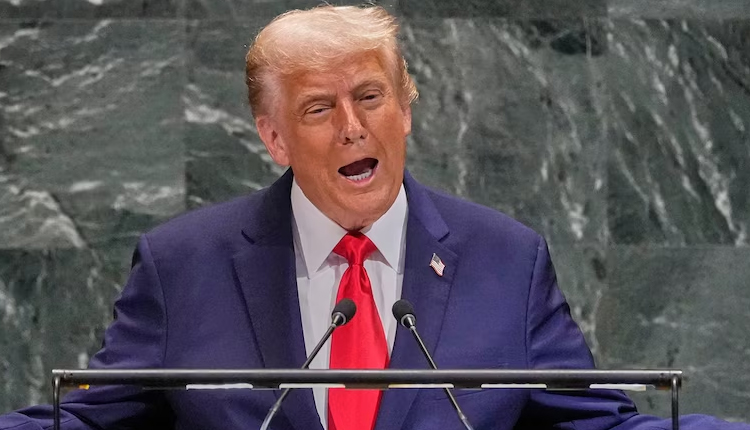Washington: As the Russia-Ukraine war drags into its third year, a stark irony unfolds in global energy politics: NATO member Hungary continues to guzzle over 80 per cent of its crude oil from Russia, yet US President Donald Trump reserves his sharpest economic jabs for India.
In a fiery UN General Assembly address this week, Trump lambasted nations like India for “funding the war” through Russian oil purchases but conspicuously spared his European ally, Hungarian Prime Minister Viktor Orban, despite Budapest’s deepening dependence on Moscow.
On Friday, Orban, a vocal supporter of Trump, reiterated his stance, stating on state radio that cutting off Russian energy ties could lead to a “disaster” for Hungary’s economy, potentially causing a 4 per cent GDP decline overnight. Pre-war, Hungary sourced 61 per cent of its oil from Russia; that figure has ballooned to 86 per cent, with state-owned MOL Group importing around 5 million tonnes annually via the Druzhba pipeline. “We can’t ensure safe energy supply without Russian sources,” Orban asserted, framing it as a national security imperative amid looming elections where he positions himself as a bulwark against “Brussels and Washington pressures”.
Contrast this with Trump’s aggressive stance on India. In August, he hiked tariffs on Indian imports to 50 per cent — including a punitive 25 per cent levy explicitly tied to discounted Russian crude buys — souring bilateral trade talks and risking a rift with a key Indo-Pacific partner. India, importing about 1.75 million barrels daily from Russia in early 2025, hit back, calling the move “unjustified”. External Affairs Minister S Jaishankar reiterated New Delhi’s mantra: energy security for 1.4 billion citizens trumps geopolitical arm-twisting. “We buy where it’s cheap and secure,” he said, echoing PM Modi’s push for self-reliance amid the tariff storm.
Trump’s ultimatum is clear: no fresh Russia sanctions until all NATO allies halt oil imports. Yet Hungary and Slovakia — the duo paying Russia nearly $6 billion in crude taxes since the invasion — face no such tariffs, unlike India or even China, which Trump eyes for 50–100 per cent duties. Experts point to alternatives like Croatia’s Adria pipeline or EU LNG terminals, but Orbán insists Soviet-era infrastructure leaves no choice.
Slovakia signals flexibility, eyeing US talks for diversification, but Hungary digs in, post its June contract expiry with Russia. This selective outrage prompts questions: why is Putin’s finances being bolstered by a NATO outlier? As Trump mulls chats with Orban —”He’s a friend; he might stop”— the hypocrisy underscores fractured alliances, with India bearing the brunt while Europe hedges.
In this energy chess game, Hungary’s defiance not only bolsters Russia but also exposes the uneven playing field – one where strategic buddies get a pass, and emerging powers pay the price.



Comments are closed.